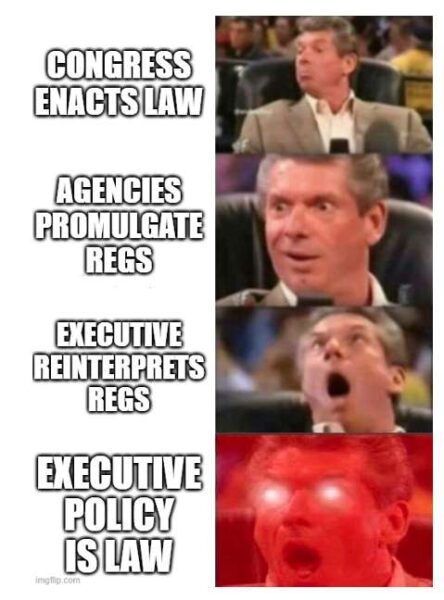This sponsored column is by Law Office of James Montana PLLC. All questions about it should be directed to James Montana, Esq., Doran Shemin, Esq., and Laura Lorenzo, Esq., practicing attorneys at The Law Office of James Montana PLLC, an immigration-focused law firm located in Falls Church, Virginia. The legal information given here is general in nature. If you want legal advice, contact us for an appointment.
When The New York Times and The New York Post are running the same headline, there is often something to the story.
The story, in this instance, concerns immigration. The Times report, “Biden Opens A New Back Door on Immigration,” ably describes the operation of the Biden Administration’s parole policy for Cubans, Haitians, Nicaraguans, and Venezuelans. (We offered an explainer on this four months ago — a triumphant advertorial scoop if there ever was one.) Meanwhile, the Post’s editorial board, citing the Times story, summarized the same facts and added its own right-of-center opinion to the mix.
The Times and the Post and Statutes of Liberty are all working from the same facts. It is indeed true that these parole programs have succeeded in one of their stated goals: they have brought hundreds of thousands of people, legally, to the United States. We have met some of them in our office.
It is also true that these parole programs have failed with respect to one of their larger goals — curtailing the practice of asylum seekers requesting protection at the U.S. land border. (As the Times helpfully points out, “[o]verall border crossings from all nationalities […] remain at historic highs.”)
This raises the question: Has this policy succeeded, or has it failed? Our view is that it is too soon to tell. If this ‘back door’ gradually expands to become the new norm for all countries, then we can reasonably expect the number of people who make the dangerous land journey to diminish. That would be an unqualified good. It is important not to euphemize about this — about 450 die each year at the border, and many more die trying to reach it.
If, on the other hand, the ‘back door’ remains limited to a few nationalities, operating as a species of extraterritorial TPS, it seems unlikely that the status quo at the border will shift.
As a matter of law, the Biden Administration’s expanded use of parole is a kludge. Parole has traditionally been used sparingly, in individual cases. We are old enough to remember USCIS lecturing the immigration bar about how parole is not a substitute for the visa system. Well, the Biden Administration’s use of parole for nationals of Cuba, Haiti, Nicaragua, and Venezuela clearly is a substitute for the visa system — if 360,000 people enter the United States with proper documentation, based on a process which includes security checks and financial affidavits, that is a visa system in all but name.
Opponents of the new system have raised these concerns in federal court, arguing that the Biden Administration has leveraged the parole system to enact its preferred policies into law without Congressional authorization. The federal courts have, so far, been fairly deferential to Presidential assertions of power with respect to immigration, with some notable exceptions — the Trump Travel Ban and the Obama administration’s attempt to promulgate Deferred Action for Parents among them.
We’ll continue to track the litigation closely. Whether this policy succeeds or fails depends on whether this Administration expands it, on whether federal judges limit or abolish it, and on whether subsequent Administrations continue or reverse it.
As always, we’re happy to answer questions and comments!



